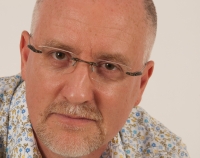Emotional investment
The idea or concept of emotional investment is not a new one. Often people will invest emotionally in projects, people, objects or relationships which make no rational sense to others. An exemple of this could be an old picture or postcard of a vacation, where happy memories were made.
Objects can often connect us with memory or create “a bond point”. A good example of this could be present or gift, given to someone by a person, and that person may be no longer alive or in relationship to them, but somehow the object or a gift, keeps contact with that person, who they have emotionally invested in.
One could say that we start investing emotionally from the very moment we form an attachment. A good example of this is when we meet a person for the very first time, which we find interesting, funny or attractive. Emotional investment may start whilst we are even talking to that person, imagining what it would be like to know this person more deeply. After that person has left our company, we may fantasise about what it would be like to know that person genuinely and do certain things with them - this is when we really invest emotionally.
At this juncture, it would be good to introduce the concept of negative and positive emotional investment. As an example, if we again return to meeting a person for the very first time, who one finds annoying or irritating. Again, we are emotionally investing in this relationship, but this time negatively. Emotional investment may be forming negative views or opinions regarding that person, and find ourselves irritated by something they have done, even after they have left.
The same could be said for experiences. Again, a good example of this may be a place or building. If, for example, you spent many happy Christmases spent together as a family in a house, you may form an emotional investment with that place. Fundamentally, the house becomes a bond point for those memories.
Having these negative and positive emotional investments can often leave a person confused. Emotions such as guilt, shame, longing, and regret, and also the idea of which Spinelli calls, “un-knowing”(Spinelli, 2009); where we regret or mourn the loss of not knowing the possibilities of choosing another direction in life; if we had chosen another partner, or chosen another career path.
Emotional investments can also make people confused, lacking confidence, and in some case depressed. An individual may ask themselves did they invest enough effort into a relationship. This could be a cryptic clue that they felt they had not invested enough emotionally in that relationship.
Conversely, investing too much can often leave a person feeling cheated or lied to. This can result in one feeling angry and confused.
The emotional investment is actively the heart ruling the head, to give balance to that statement Friedrich Nietzche said “many find their hearts when they have lost their head”(Unknown, 2015).
References
Spinelli, E. (2009). Tales of un-knowing: Eight stories of existential therapy. Ross-on- Wye PCCS Books
Unknown. (2015). Heartruling the head Friedrich Nietzche Retrieved 9 January 2015, 2015, from http://www.searchquotes.com/search/Head_Vs_Heart/2/

Find the right counsellor or therapist for you
All therapists are verified professionals
